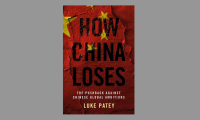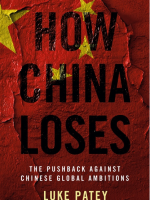China’s global challenges

What are China's policies in Africa? Is this policy facing challenges and problems, or is Africa in harmony with the Chinese ambition for hegemony?
China’s Africa engagement is comprehensive, stretching from trade, investment, and finance to political, diplomatic, and security activities. It is hard to generalize China’s relations with a continent of 54 countries, but there are some trendlines that get lost in the China-Africa hype. For example, much of China’s economic engagement in Africa is directed towards a select few countries. Over half of China’s $153 billion in finance to Africa goes to five countries: Angola, Zambia, Ethiopia, Kenya, and Nigeria. Likewise, South Africa and Nigeria alone make-up 30% of China’s trade with Africa and South Africa and the Democratic Republic of Congo represent over a quarter of total Chinese investment on the continent.
China has a positive reputation across Africa. According to a recent Afro barometer poll in 18 African countries, however, most still favour the American development model. But there is no common view of China in Africa. It is also important to recognize there are differences in China’s relationship within African countries too. African elite may favour the economic benefits they can access from Chinese finance, while local populations and civil society are more critical of the social and environmental consequences of these activities. Whether or not China’s trade, investment and infrastructure finance produces lasting developmental growth in African economies will be a critical test for the relationship moving forward.
Can Beijing expect to maintain the frontiers of foreign trade and investment in its domestic market while enjoying greater access to others?
This will depend on the responses of other major economies and multinational corporations. On the one hand, Chinese state-owned enterprises and private corporations are facing new investment restrictions in advanced economies. The European Union, for example, has passed new investment screening policies and the United States and Japan maintain a critical eye towards Chinese takeovers in their economies. This closes one avenue for Chinese industries to elevate their technology capabilities through overseas acquisitions. On the other hand, since China’s economy has been outperforming other large economies during the covid-19 pandemic. It is attracting sizeable levels of foreign investment. On top of the technological advances of Chinese companies, this interest can also enhance innovation and growth in China.
Is Europe's economic dependence on China so important that Beijing can influence European foreign and defense policy and change democratic norms and values? Especially that Germany, for example, is very closely linked to the Chinese economy, and this link is strengthened in the era of the Covid-19 crisis.
Europe’s economic dependence on China is a myth. China may be the second largest economy in the world and on pace to become the largest, but there is still a lack of access for foreign trade and investment. Only 6% of the European Union’s total trade is with China. China is Germany’s largest trading partner, representing 7% of its total trade, but it has nearly similar levels with the United States, France, and others. Both the EU and Germany have a diverse trading portfolio. They are not dependent on any single foreign economy. Separating rhetoric from reality, however, is hard to do because there are key European companies, such as Volkswagon, which have high levels of sales and profits in the Chinese market. If the EU is making compromises on its foreign and defense policy and democratic norms and values, then these decisions are either being taken on the false grounds of economic dependency on China or advanced by special interests.
As Argentina saw a new president taking power in late 2015 he called for the suspension and possible cancellation of China's multibillion-dollar mega infrastructure projects. How did China respond to the democratic change that threatened its economic interests? Do domestic pressures from the private sector, labor unions, environmentalists, and others in Argentina reflect the broader challenges that China faces in its ambitious Belt and Road Initiative across Africa and Asia?
The election of Maurio Macri as Argentine president did reshape a few large Chinese infrastructure projects. Macri is no longer in power and many of the Chinese projects, such as railroads and hydropower dams, are still under development. But the agreements were reformed to advance local interests more closely. This demonstrates that despite its immense economic power, China must adjust to local demands in its Belt and Road Initiative. There are competing domestic interests to Chinese projects in the countries it engages. Most emerging and developing economies will also seek balance between external partners such as the United States, Japan, the European Union, and India.
Can China's development model find its roots in these regions while at the same time advancing its economic and strategic goals?
I don’t see any countries in the world following China’s development model exactly. They simply don’t have the same domestic conditions that China had in the 1980s and 90s, such as a large, educated population to engage in low cost manufacturing and exploit the global economy and spark fast-paced growth. India may rise at impressive speeds in the coming decades, but it will find its own development path forward. China’s economic developmental success may inspire other countries to double down on their own governance agendas, but China’s authoritarian model also acts as a hindrance to advancing some of its economic and strategic aims in the world, such as the pushback against the global expansion of Huawei and other Chinese technology companies.
Considering that China is intent on regaining what it sees as lost territories in the South and East China Seas through economic coercion and the threat of force. After building deep trade ties with its Asian neighbors, how will China's use of unofficial sanctions and consumer boycotts affect these relationships?
China’s recent economic coercion against Japan, South Korea, Australia, and Taiwan, serves as a reminder to its neighbours that relations with Beijing are becoming more challenging than in years past. For many years, most of its neighbours in Asia saw China in a positive light. But these acts of coercion have undermined China’s reputation among its large neighbours. Even in emerging and developing economies in Asia, local populations increasingly are suspicious of Chinese investments, fearful of the influence such deals may provide Beijing.
Can Japan, India and other Asian countries resist ? Here I am referring to South Korea's submission to China's economic pressure. Is this submission not an indication of the submission of the rest of East Asian countries to economic pressures?
South Korea did not submit to Chinese economic pressure. Despite Beijing shutting down Chinese tourism to South Korea, and Korean companies facing pressure operating in China, Souel went ahead and installed a American missile defense system on its territory. There are similar misunderstandings about China’s economic coercion on Australia, which has managed to send much of the exports targeted by Chinese trade sanctions, such as coal and barley, to new markets. China is a major economy, but the global economy is large and diverse. Many of China’s targets, including Canada, have not been too adversely impacted by its economic coercion. China has interests too that it does not wish to upset by placing too much pressure on its economic partners.
It can be recognized that there are a group of countries that have been subject to China. Does this not put us in front of a new model of international relations, especially since the economic model, despite its importance to China, is not the only determinant of it in the process of producing political decisions?
The world is no longer in a unipolar moment. The United States is in relative decline as a superpower. We’re in a multipolar world where the interests of other major powers hold significant influence. China is an important actor, but it will need to find a way to coexist with the other major powers, including the United States, European Union, Japan, and India. Those that find ways to compromise and cooperate with others will have the most success. If the United States and China continue to push their own interests too forcefully, they’ll fall short of reaching their global ambitions. Both Washington and Beijing need to recognize that they are not destined to be at the centre of the global economy and global affairs.
DIIS Experts


